- Home
- Sharon Bolton
Here Be Dragons: A Short Story
Here Be Dragons: A Short Story Read online
About the Book
There must be a thousand people in the vicinity of Westminster Bridge on this beautiful evening . . . in approximately thirty minutes’ time, many of them will be dead.
Mark Joesbury, of Scotland Yard’s Covert Operations Unit, is undercover. Embroiled in a terrorist gang’s plans for a deadly attack at the heart of the capital, he’s risking everything to stop them. But as they prepare to target London’s most iconic landmarks, it’s no longer just countless strangers he’s fighting to save. Because they’ve also got the woman he loves, DC Lacey Flint . . .
Contents
Cover
About the Book
Title Page
Prologue
Chapter 1
Chapter 2
Chapter 3
Chapter 4
Chapter 5
Chapter 6
Chapter 7
Chapter 8
Chapter 9
Chapter 10
Chapter 11
About the Author
Also by Sharon Bolton
Copyright
Here Be Dragons
Sharon Bolton
Prologue
THIS IS THE River Thames in London, about an hour before sunset on a midsummer evening, the time of day when the light blooms and the world is awash with charm and possibilities. This is the time of day when grey stone turns the colour of candle flame, when the illusion of a tan lends a beauty to pale faces and when dull hair shines with borrowed glamour. This is the time that film-makers and photographers call the magic hour. Or golden hour.
Just eleven days into July and the Thames at Westminster Bridge is an expanse of molten metal, a fire-bright lava flow, gleaming its way through the jewel-coloured glass towers, the honey-bright facades of the Georgian riverside buildings, and past the Gothic arches and turrets of the Palace of Westminster.
Above the river, clouds are mustering, but their heavy, voluptuous presence merely enhances the beauty of the evening because the light floods into the clouds until they seem about to burst with colour. The cloud-bank hangs in the sky like a heavy canopy of gold.
Westminster is busy. The traffic is heavy in central London this evening and there must be over fifty cars, taxis and buses along the length of the bridge. There are pedestrians too, loitering, enjoying the unique vantage points the bridge offers. More crowds amble along both river banks. On the terraces of the Palace of Westminster, sharp-suited men and women in flowing summer dresses try to keep their drinks, and their underarms, from becoming too warm.
Few people are enjoying the golden evening more than those in the thirty-two capsules of the London Eye. The giant observation wheel has become one of the most iconic landmarks in the world and tonight the ‘flights’ have all sold out.
All told, there must be a thousand people in the vicinity of Westminster Bridge on this beautiful evening; which is a great, great pity, because in approximately thirty minutes’ time, many of them will be dead.
Some five miles downriver from Westminster, holding its position in the water between Rotherhithe and Canary Wharf, is a rigid inflatable boat, a RIB. The master of the vessel, in the uniform of a Marine Policing Unit sergeant, has just been given instructions to head upstream towards Westminster.
He does what he is told. He has no choice.
Marine Unit boats are a common sight on the river. Anyone seeing this one, and its crew of five dark-haired, uniformed men, will think nothing of it. Police presence on the river is expected to be high this evening. The Prime Minister is hosting a reception on the House of Commons terrace, attended by several members of his cabinet, a minor member of the royal family, and a very important guest of honour.
As the RIB draws closer to Westminster, it will be assumed to be part of the security force detailed to guard the PM and his guests. Which is exactly what it was until a few minutes ago, when a gang of armed terrorists hijacked the boat and took the real crew hostage.
It heads now towards Westminster, and at its helm is Mark Joesbury.
In his stolen uniform, Joesbury, of Scotland Yard’s Covert Operations Unit, steers the RIB past Wapping police station, the Marine Unit’s base, without anyone on the pontoon or in the building spotting anything out of the ordinary. Tower Bridge is in sight now. The RIB is almost back in the city.
On the brink of disaster, there is nothing Joesbury can do. There is no one he can warn, because his cover is blown and watchful eyes never leave him. He doesn’t even know what form the attack will take, whether he and the RIB’s crew are to be bystanders, or right in the thick of it. He doesn’t know whether he will live or die.
Worst of all, the gang he has spent three weeks infiltrating has kidnapped the woman he loves. At this very second, at not quite grasping distance from where he stands, a gun is being held to Lacey Flint’s head.
1
Three weeks earlier
PLUNGING FULLY SUBMERGED into an iced-over pond, stepping outside the tent into a blizzard, taking a sharp knife to your own wrist: there are numerous comparisons that undercover police officers use to describe the moment when a job begins.
Mark Joesbury thinks of it as taking the first step into a portal. For the few seconds before he crosses over, he can see two worlds running along perfectly parallel lines: one is his own, in which he eats, drinks, works and sleeps, sees his son, spats with his ex-wife and loves a dangerous, wayward, unpredictable girl with all his heart.
And then there is the other world, constructed painstakingly and dangerously over months, sometimes years, the one that is make-believe, a dark fantasy, in which rules are fluid when they exist at all, where the centre isn’t fixed and the boundaries shift continually. The other world is the one that could implode at any second. It is the one into which, sooner or later, he must step, moving sideways from a straight and true line on to a thinly etched, wavering one. That moment is now. This is where he crosses.
‘Here be dragons,’ he mutters, as he always does.
The portal this time is a strip club on Argyle Street, just off the Old Kent Road in south London; a place the Metropolitan Police have been watching for some time, largely because of their interest in the man who runs it. Known only as Rich, or Rich-Man, he is someone who manages to operate, very successfully, under every known radar.
Rich-Man has no driving licence, no bank account, no passport, no social security number that the UK authorities are aware of. Earning no money officially in the UK, he has no tax status. He lives like a permanent tourist, and yet there is no record of him having entered or left the United Kingdom.
The limited company that owns the Argyle Street club is based offshore and seems determined to keep secret the identity of the man in charge. Rich is a man of smoke and mirrors. An enigma.
And then, six months ago, a new player appeared. Anwar Assaf is a young British man of Palestinian origins, with suspected connections to the Palestinian Islamic Jihad, an organization whose objective is the destruction of the State of Israel and the establishment of a sovereign Islamic Palestinian state. MI5 made contact with Scotland Yard’s Counter-Terrorism Command. The investigation was raised to a whole new level, and the first covert operative was sent in. Joesbury is to be the second.
The illuminated green sign outside the club advertises EXOTIC GIRLS and the red neon one beneath it says PEEP SHOW. Joesbury gives his name – Mick Jackson, the name he always uses when he is working undercover – to the overweight doorman and is nodded through.
The saloon-style interior doors open on to a space that at first glance looks large but that, Joesbury soon sees, is an illusion of clever lights and mirrors. The stage is shaped like a clover-leaf, with each ‘leaf’ having its
own glistening silver pole.
Two girls are dancing. The platinum blonde closest to the entrance wears heavy make-up to hide the fact that she’s well into her thirties. She’s wearing a long black dress with silver trimmings, slit up both thighs. As Joesbury’s eyes adjust to the darkness, she lifts one leg and stretches it up the pole until she’s created a perfectly straight vertical line between the foot on the ground and the one in the air. Then she begins to rotate.
The other girl is younger, mixed race, and strikingly beautiful. She wears a skimpy black thong and vest top and is bent over double, clenching her buttocks at two middle-aged white blokes who seem to have lost the ability to blink.
The music is loud enough to blow his head apart.
Joesbury has never been in the club before, but it has been described to him down to the last detail by the man he has come to meet.
Over at the bar is Ben Tweedy. In his late twenties, ‘Beenie’ is believed by the club’s management to be an ex-con released last year from the Scrubs after serving two years for aggravated assault. He is the front-runner, the junior detective typically sent first into a job, the one who lives in a shit-hole of a bedsit in the area, hanging around dodgy bars and clubs, supposedly looking for work, hoping to attract the attention of the people under investigation. For some time now, Rich has been using Beenie for errands and odd jobs. Increasingly, Beenie is driving Rich around London.
There are two other men at the bar, a dark-haired, very good-looking man in his early thirties whom Joesbury recognizes from police photographs as Anwar Assaf, and an older man, possibly in his sixties, with dark hair, swarthy skin and a large, hooked nose. This is Rich or Rich-Man.
This is the delicate point of the operation, this feeding in of a new player, who might be accepted and take the game to a whole new level, or who might get turned on by the pack and eaten whole.
‘Jacko, good to see you, buddy.’ Beenie’s words might be hale and hearty, but his voice is pitched low and barely audible above the music. The two men clasp hands briefly.
‘Sergeant Jacko to you, youngster. You good?’
‘This is Mick. Mick Jackson.’ Beenie is talking to the older man.
‘You like my girls?’ Rich wants to know, just as another dark-skinned man appears and takes up position next to Assaf. The newcomer is in his twenties, short and stocky, and his nose has been broken and badly reset. From an earlier briefing, Joesbury guesses this must be Ghufran Haddad.
The girl in the thong is now down on all fours, performing pelvic thrusts at the mirrored floor. The older one is airborne, spinning around the pole. ‘That one shows some talent,’ Joesbury says.
‘I have some very nice girls upstairs. Can I introduce you to one? No charge.’
Oldest trick in the book. Offer a new contact a whore, find out whether or not he’s willing to commit a crime.
Joesbury stifles a fake yawn. ‘Later on that might be very nice. But I like to get business out of the way first.’
‘Let’s take a walk.’
They leave the club via a door marked Private, which takes them into a narrow and grimy corridor. Rich leads the way, followed by Joesbury, Beenie and the others. They pass through a kitchen piled high with empty bottles and discarded takeaway cartons and step outside into the hot, fume-ridden air of night-time London. A dark BMW saloon is waiting for them in the alley outside.
‘In the back.’
Joesbury finds himself in the middle of the back seat between Haddad and Assaf. Beenie drives and Rich sits in the passenger seat. As the car moves away, a dark hood is brought down over Joesbury’s head.
As the hot cloud of his own breath threatens to stifle him, Joesbury tells himself to keep breathing, to concentrate on where they are heading, to stay alert and, above all, not to panic. These guys want to know what he’s made of, whether or not he can keep his head in tense situations. He can. He closes his eyes, concentrates on the movement of the car, and plays music in his head.
Fifteen minutes later, the car swings sharply right, loses speed and crunches to a halt. The hood is pulled from Joesbury’s head and they leave the car.
They are in a quadrangle. On all four sides are the tall grey-brick walls of Victorian warehouses. The gravel beneath their feet is coarse and filthy, oil-stained, strewn with rubbish and junk, sprouting the occasional parched weed.
The only way in and out of the quadrangle is a bricked archway, not wide enough to take anything bigger than a transit van, tall enough to let pass a horse-drawn cart piled high with crates or barrels.
Doors, on the upper floors, would have led to conveyors in the old days. Now they just look threatening and Joesbury has a vision of himself standing in one of those doorways, being eased out with a sharp push. He thinks, not for the first time, that a vivid imagination isn’t always an asset in his job.
Assaf approaches and stands square in front of him, and Joesbury raises his arms to be frisked. He allows Haddad to remove his jacket. They will be looking for recording equipment, a GPS tracking device, a gun. None of which he is carrying.
At least two of this lot are armed, though, including Beenie. He has already spotted the tell-tale bulge under Haddad’s jacket, and Beenie has sneaked him a glimpse of the Beretta only just hidden by his long, loose shirt. Which is really not cool. Contrary to popular belief, officers on covert operations are not allowed to break the law and have no automatic immunity from prosecution. Beenie might have already allowed himself to get reckless.
When the search is over, Rich steps in. ‘Where are we?’
Joesbury makes a show of taking a deep breath and tilting his head this way and that. He takes in the smell of oil, brine and rotting vegetation. ‘About a stone’s throw from the river.’
Rich snorts. ‘More specifically?’
Joesbury knows exactly where they are – he knew when the car stopped – but nobody likes a smart arse. He turns on the spot until he sees the moon. ‘South Bank.’ He carries on, finds Canary Wharf tower, closes his eyes again and pretends to think.
‘Royal Jamaica Sugar warehouse.’ He points west. ‘Not far from the Blackwall Tunnel. The A206 is about a quarter of a mile that way. Been derelict for twenty years, due for development in the next couple. No river access here any more, unless you’ve taken wire-cutters to the fence.’
Something in Rich’s face has softened, although the lines around his mouth suggest he rarely smiles. ‘How far to Tower Bridge?’
‘Nine kilometres, give or take.’
‘How long to get there? By river.’
So this is something to do with the Thames. Beenie had suspected as much when he’d been told to find them a bent (or bendable) copper with knowledge of the river.
‘Depends on your engine size. The Marine Unit’s RIBs are about the fastest craft on the river. One of them would do it in about twenty-five minutes at twelve knots. Less if they put their foot down.’
‘How long to Westminster Bridge from here?’
‘Same speed, maybe thirty-five minutes.’
‘Is there a speed limit on the river?’
Joesbury shakes his head. ‘Not before Wandsworth Bridge, but most craft stick to between ten and twelve knots. The closer you get to the Houses of Parliament, the more wary the police will be about speeding. And you’ll be on the radar of the Port of London Authority.’
‘And the Barrier? How long to get to the Barrier?’
The Thames Barrier is an immense concrete and metal flood-defence structure that spans the river at Woolwich. ‘Authorities are less twitchy about speed on this stretch,’ Joesbury tells him. ‘The RIBs will do it in five minutes, maybe less, depending on the tide.’
‘What’s the tide now?’
‘It was on its way in when I crossed Vauxhall Bridge earlier. I’d say about four hours off high water and running at its fastest. You guys planning a fishing trip?’
Rich’s frown doesn’t even soften. ‘Beenie says you’ve got contacts in the river police.’
>
‘My granddad worked for the Marine Unit for thirty years. I know a lot of the guys. Dave Cook’s a family friend.’ He doesn’t mention his Uncle Fred, a sergeant with the unit – somehow it feels too personal. And he certainly isn’t going to tell them about Lacey.
Rich is still dominating the conversation. The others are spaced around him and Joesbury, like Security. Rich says, ‘Beenie told you I need help with a job?’
Joesbury glances round, ostensibly to nod at Beenie, in reality to check exactly where the other guys are. ‘That’s all he told me. I normally like to have some idea what I’m getting myself into.’
Rich sneers. ‘Did you know what was going down with the Wandsworth job?’
The Wandsworth job is fictitious, part of his cover. Mick Jackson is supposedly a uniformed sergeant, recently transferred from Wandsworth to Catford police station following an investigation into fraud.
‘Nothing ever proved about that.’
There is just the shadow of a smile on Rich’s face now. ‘I’ve heard you’re on a final warning with the force.’
Joesbury says nothing. This, too, is part of his cover story that has to be believed.
‘Just been through a divorce. Wife cleaned you out.’
Joesbury is divorced, has been for several years, but Carrie, his ex-wife, was characteristically reasonable about the settlement. ‘What’s it to you?’
Rich holds his hand out. As if waiting for the cue, one of the men hands him a cheap sports bag. Rich unzips it. Inside is cash.
‘Ten grand,’ he says. ‘Call it a down-payment. Forty more when the job’s done.’
‘Nobody pays ten grand for a fishing trip. Never mind fifty. What’s this about?’
Joesbury is conscious of Beenie holding his breath. Maybe he is doing it too.
‘You can walk away now. But if you take that, consider yourself in my employment.’

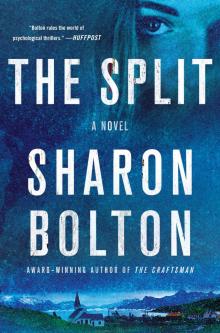 The Split
The Split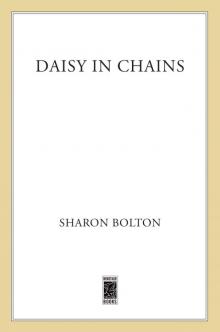 Daisy in Chains
Daisy in Chains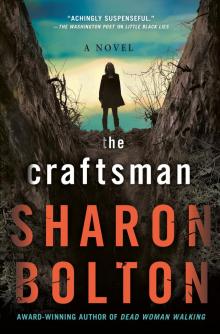 The Craftsman
The Craftsman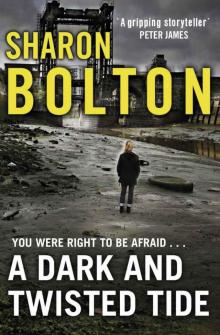 A Dark and Twisted Tide
A Dark and Twisted Tide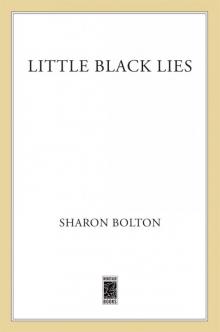 Little Black Lies
Little Black Lies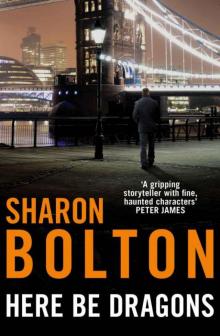 Here Be Dragons: A Short Story
Here Be Dragons: A Short Story Alive
Alive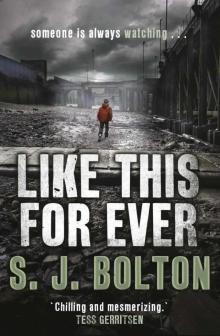 Like This, for Ever
Like This, for Ever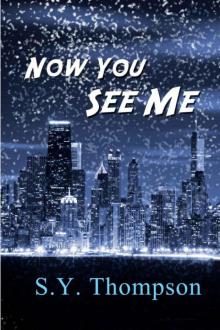 Now You See Me
Now You See Me Sacrifice
Sacrifice